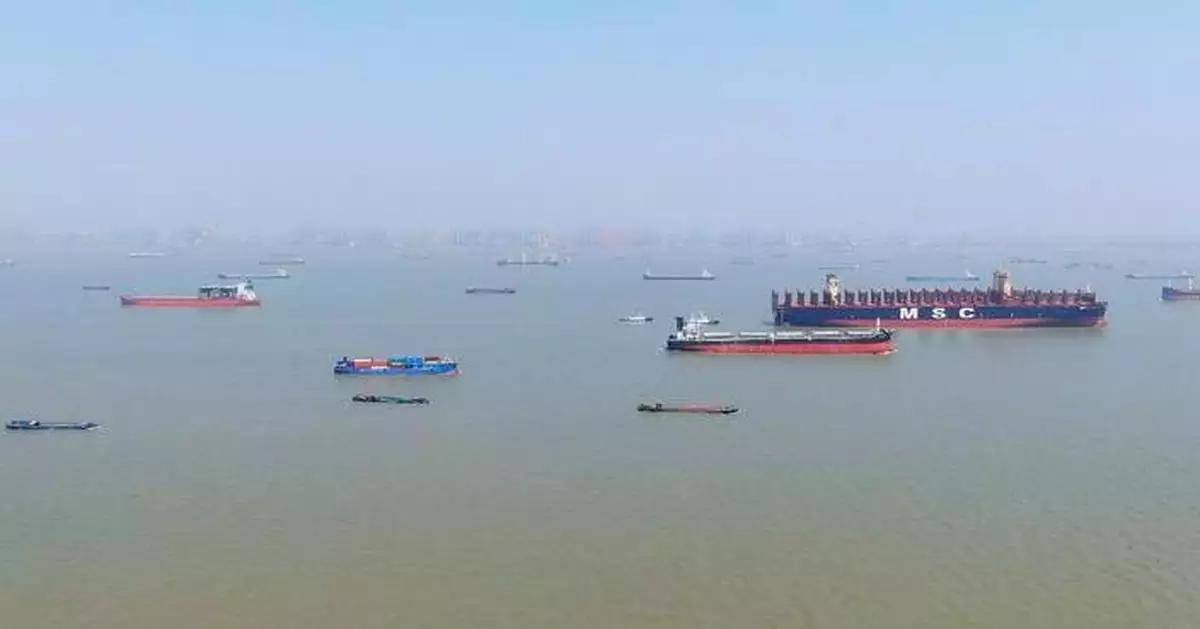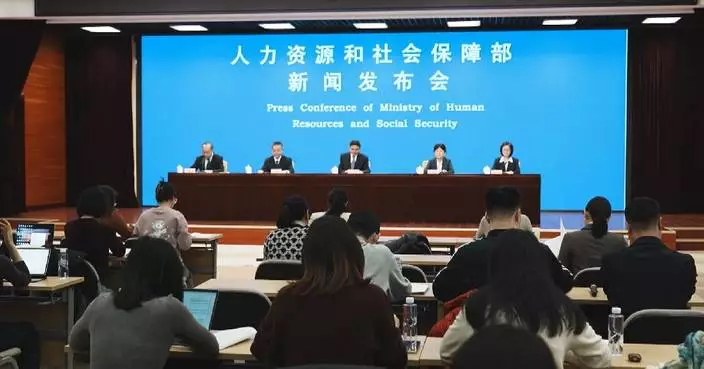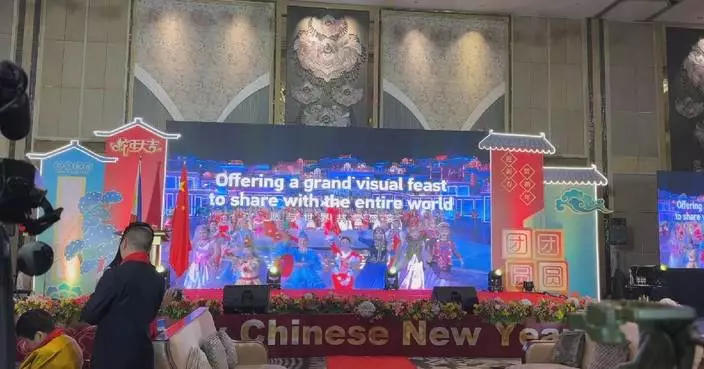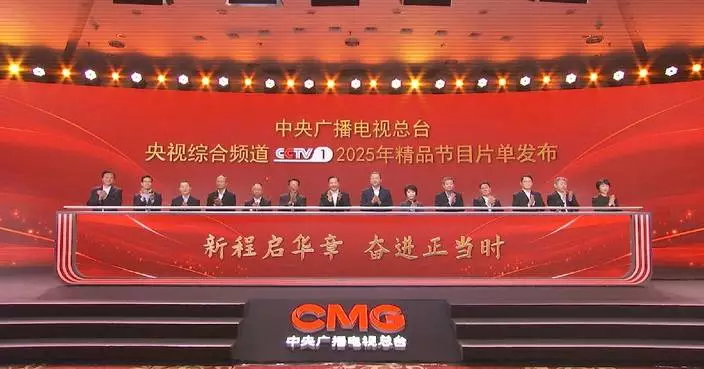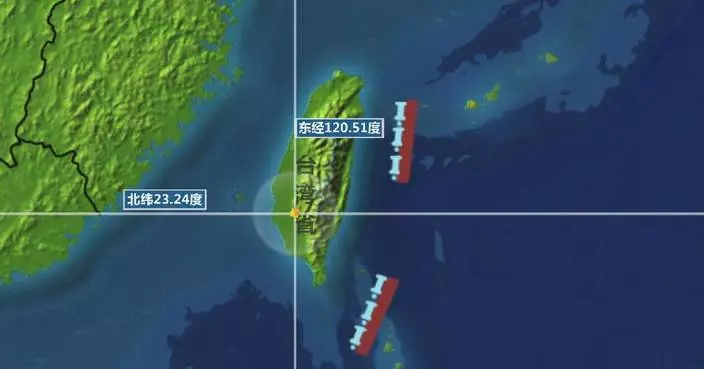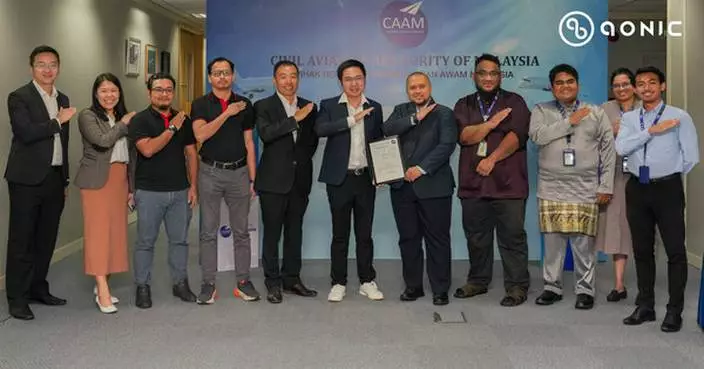Shanghai, a pivotal international shipping hub, is actively pursuing advancements in its shipping industry, aiming to set new records in shipbuilding and apply smart digital technologies to shipping management.
The city boasts an advanced shipbuilding industry, excelling in the construction of large vessels and specialized ships.
At the Shanghai Zhenhua Heavy Industries shipyard, construction is underway on the world's largest piling vessel, measuring 150 meters in length.
Piling vessels have a wide range of applications, ranging from constructing cross-sea bridges to offshore wind farms and oil and gas platforms. The construction of these vessels demands meticulous attention to detail.
"Both the manufacturing and installation of components require precise accuracy, so it's important that thermal expansion and contraction are consistent during the welding process," said Li Jie, a designer with the company.
Apart from shipbuilding, Shanghai has enhanced its ship management capabilities by utilizing technologies such as satellite positioning and 5G.
With the integration of these technologies, the Shanghai Maritime Safety Administration can effectively monitor ship movements, particularly those carrying hazardous goods, to ensure maritime safety.
"Those marked in red with bubbles are ships with hazardous goods. This highlighted display is intended to help us monitor and provide reminders to them," said Shen Baoxing, deputy director of the administration's vessel traffic management center.
A container terminal at the Shanghai Port has also undergone technological upgrades, enabling positioning and navigation technologies to efficiently direct containers to their designated vehicles.
"5G technology can penetrate certain steel barriers, enabling us to transmit signals more accurately to our unmanned vehicles. This allows them to stop precisely at designated positions, thereby enhancing the operational efficiency of our bridge cranes," said Zhou Wei, general manager of a container terminal company.
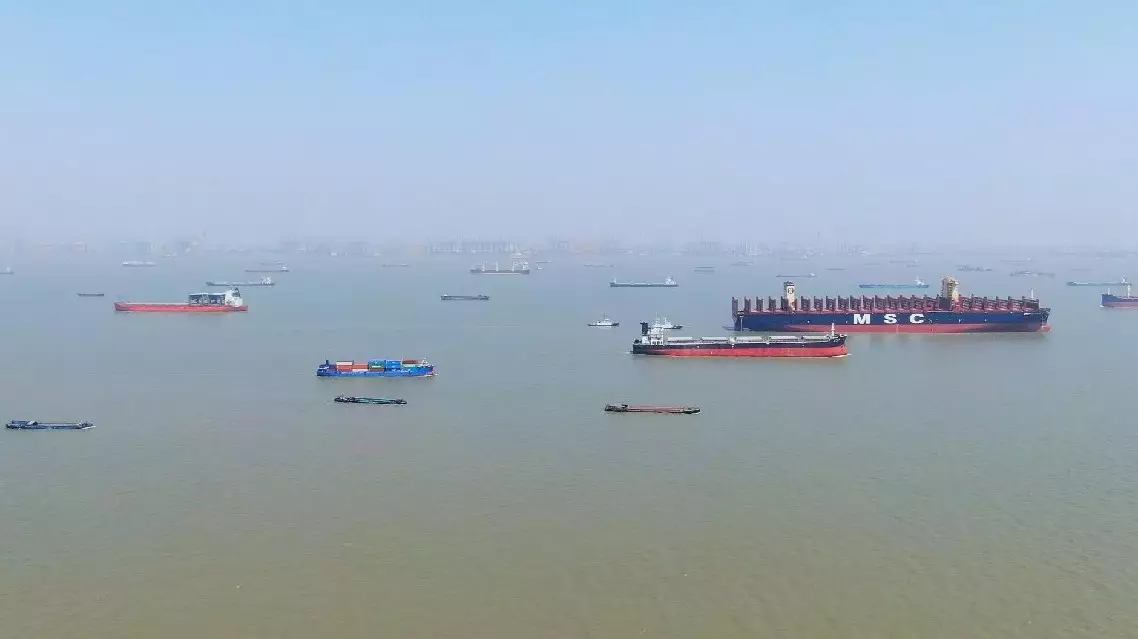
Shanghai advances shipping industry with digital transformation, ambitious shipbuilding
People in Panama City have firmly dismissed U.S. President Donald Trump's threat to retake the Panama Canal, calling his claims "nonsense" and saying such a move even risks world peace.
After his presidential election win in November, Trump has made a series of expansionist remarks, including stating his plans to make Canada a U.S. state, rename the Gulf of Mexico, and gain control of the Panama Canal and Greenland.
Last month, Trump accused Panama of treating the U.S. in a "very unfair and injudicious way," and has refused to rule out using military means or taking economic action in his pursuit of the Panama Canal.
At the start of this year, Panama celebrated the 25th anniversary of the handover of the canal, which had been under the control of the United States for nearly a century until the end of 1999.
During his inauguration speech shortly after taking the oath of office on Monday, Trump claimed Panama had 'violated' the treaty and said the U.S. would be "taking it back." In response, Panamanian President Jose Raul Mulino rejected Trump's position and said there is no presence of any nation in the world that interferes with the administration of Panama.
Many residents in Panama see the canal as a symbol of national pride and consider it a crucial driver of the country's economy.
Milena Marin, a local resident, criticized Trump's remarks and called on countries across Central America to stand together to protect their own interests from U.S. infringement.
"First of all, the Panama Canal belongs to the Panamanians, and we are doing an excellent job managing it. Since we took over its administration, we have been doing very well. Those (Trump's statements) are words of attack. We have to take care of our canal. It has a negative impact since [Trump's remarks] affect both the environment for us Panamanians but also the image of the country. We have been doing a great job with the management of the canal. These statements definitely affect world peace. They bring such negativity around Panama. [We need] more meetings and dialogue with Central American countries, because the more united we are, the stronger and less vulnerable we will be. And I think that the union between the countries of Central America could be a great solution," said Marin.
Meanwhile, Luis Gomez, a local photographer, said Trump's statements are lacking in reason, and said the issue should be resolved peacefully, citing the huge military disparities between the two sides.
"The president's statements do not make sense and seem a bit illogical, since Panama is such a small country that we don't even have a [traditional] military. We have no chance of being able to confront [the U.S.] because they are a powerful country. We cannot compare ourselves to a country of such size. The impact would be overwhelming for us. The canal is important not only for Panama but also for the whole world because it allows ships and goods from all over the world to pass through smoothly," said Gomez.
The Panama Canal, which started operation in 1914, serves as an important international waterway that links the Pacific and the Atlantic. It was taken over by the Panamanian government in 1999 following the terms set out in the Torrijos-Carter Treaties, which were signed back in 1977 by Panama's General Omar Torrijos and then U.S. President Jimmy Carter, ending 85 years of the colonial enclave known as the Panama Canal Zone.

Panamanian residents dismiss Trump's claims of retaking Panama Canal



